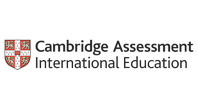Heritage International School in Chişinău is the first international school established in the Republic of Moldova and registered with the Ministry of Education, Culture and Research of the Republic of Moldova. Heritage International School is founded on the belief that all children have the right to a relevant, inclusive and holistic education, which will help to awaken each child’s critical thinking, emotional intelligence and self-expression, preparing such a child to make meaningful contributions to the world. The school provides learning opportunities for children in the primary, gymnasium and lyceum ages. Some of the prominent features of the curriculum of Heritage International School are:
Curriculum of the Republic of Moldova
Heritage International School has adopted and provides the acquisition of all skills and competencies offered by the national curriculum. This path, is presented in an innovative way though parallel, and, at times, mixed learning groups in English and Romanian/Russian language.
Cambridge International Pathway
Heritage is the country’s only school to have obtained the status of “Cambridge school”. Heritage International School is officially recognized by Cambridge Assessment International Education as a Cambridge School. The centre number is MD004.
Interdisciplinary approach through the International Primary Curriculum (IPC) and STEM
The syllabus of Heritage International School, approved by the Ministry of Education, Culture and Research of the Republic of Moldova is a unique blend incorporating three distinct curriculums: national curriculum, International Primary Curriculum (IPC) and Cambridge Assessment International Education curriculum. Combining science, technology, engineering and mathematics through STEM-based activities adds to creating content cohesion for lasting skills acquisition.
Curriculum mapping builds an integrated, flexible sequence for learning, by infusing key targets in the three curricula through identifying and teaching the common and unique competences.
International mindedness
Community and global awareness is at the core of the vision on education by the founders of Heritage International School. Both IPC and Cambridge International curriculum frameworks are child-centred and are built on clearly defined learning goals, which reinforce the cognitive, personal and social development of each learner. The selection of learning topics and all-school practices promote the culture of global mindedness.
Multilingualism
Through its curriculum Heritage International School offers an unsurpassed exposure to bilingual education. In fact, multilingualism is deeply embedded in the selection of curriculum pathways which vary – English, Russian, Romanian with additional foreign language such as French and German.
Character building
While engaging in rigorous content and skill acquisition, the learners are encouraged to build and improve in their character trait and work skills. The curriculum promotes the training of personal values such as cooperation, thoughtfulness, resilience, responsibility, adaptability, staying engaged, being reflective and several other character attributes which enable the learners to become successful in their academics and career pursuits.
Holistic Development
The curriculum of Heritage International School is balanced and places equal importance on the academic, physical, moral and aesthetic development of the learners through a carefully tailored provision of academic and extra-curricular activities including sport and the arts.
Competitive Diploma
As a result of the prime quality of the curriculum offered in Heritage International School, the learners acquire a competitive diploma in BAC (National pathway) and Cambridge International (International General Certificate in Secondary Education – IGCSE or A Level) which will allow the learners to gain admission into world-class tertiary institutions.
Learning in Heritage, as a life-long process of self-improvement
As a result of the innovative curriculum of Heritage International School, the pupils become life-long learners, who, having been equipped with 21st century skills such as critical thinking, communicative and team skills, digital competences, creativity and morality, continue in the process of self-improvement and service to their community.








